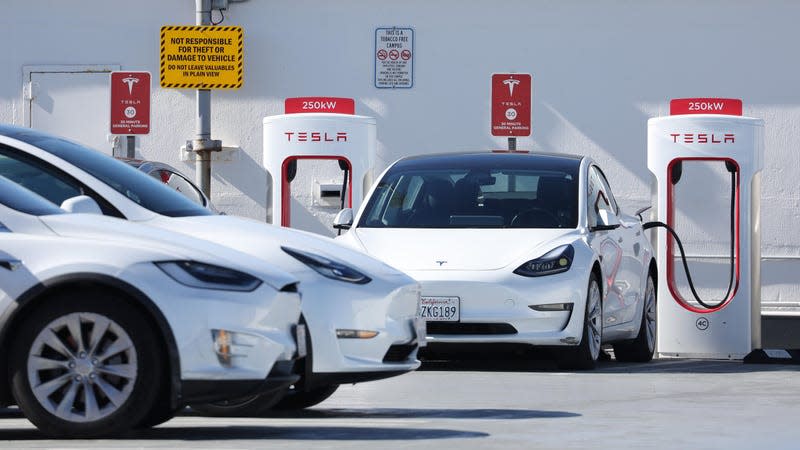It's Too Hot For EVs To Work Right

We already knew electric vehicles don’t do so well when it gets really cold outside. Well, apparently they don’t really like extreme heat either. According to Automotive News, the recent heat wave across much of the Southern and Western U.S. has brought their range issue to the forefront.
A Seattle-based EV battery and range analytics company called Recurrent has reportedly tested thousands of vehicles in various weather conditions. It found that many vehicles experienced “significant declines” in their range as temperatures rose. Some apparently suffered a 31 percent drop when temps got about 100 degrees Fahrenheit. That is less than ideal. At cooler temperatures, the outlet reports that the range loss wasn’t as high. There was an average of 5 percent reduction at 90 degrees and 2.8 percent at 80, so it’s definitely not linear.
Read more
Auto News says that in order to calculate these average temperatures, Recurrent used a blend of data from the 17,000 vehicles the company keeps track of. This data includes 65 EVs and plug-in hybrid models that include mainstays like Tesla’s entire lineup, the Chevy Bolt EV, Hyundai Konda, Nissan Leaf, Ford F-150 Lightning and Mustang Mach-E.
Unfortunately, we don’t know which models did the worst in terms of range loss. However, Recurrent did say that all four of Tesla’s vehicles had the smallest range degradation, but they also had the widest gap between their real-world range and the EPA’s estimates. Part of the reason for their resistance to range loss may be because of their heat pumps, Recurrent’s CEO Scott Case told AutoNews. They’re apparently much more efficient at cooling than standard automotive air conditioners.
The outlet also spoke with Greg Less, the technical director of the University of Michigan Battery Lab. He explained that range decline from heat has its roots in battery chemistry.

 Yahoo Autos
Yahoo Autos 